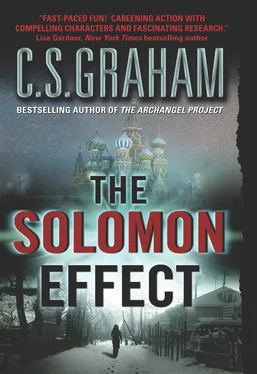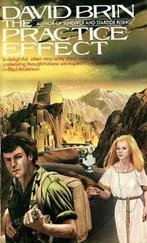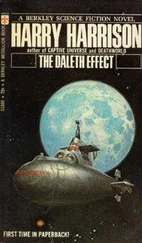Dixon gunned the Kawasaki to life. “Fucking assholes. I want her. I want them both.”
“I don’t care who gets them, as long as we get them.”
They rented a beat-up old Lada from a shady outfit in a grimy lane just off a wide avenue the Soviets had renamed Moskovsky. The white-haired, wizened Russian behind the counter insisted they pay cash in advance, but magnanimously threw in a free Cyrillic map of the province.
“It’s a little out of date and not particularly accurate, but-” He broke off to toss a quick glance over his shoulder, then leaned in closer to add in a whisper, “Accurate maps are considered military secrets, so you might be in for a few surprises. Still, it’s better than nothing.” He hesitated. “Usually.”
“This doesn’t sound promising,” said October, spreading the map open across the dashboard.
“Can you find Zelenogradsk and Rybachy, or are they still military secrets?”
“Here’s Rybachy. It’s on the Curonian Spit.” She drew her finger along the thin bar of sand dunes that stretched from the Oblast to Lithuania and divided the Baltic Sea from the Curonian Lagoon. “I don’t see Zelenogradsk.”
“It must be around there somewhere.” He turned the key, and on the third try managed to get the Lada to turn over. He wrestled it into gear, and the car lurched forward. “We’ll try Rybachy first.”
Keeping one eye on the rearview mirror, he spent about ten minutes weaving in and out of city traffic, driving randomly around first one block, then the next.
“See anyone?” she asked, craning around to look back.
“No.”
“Maybe there’s no one else.”
“Maybe,” said Jax, unconvinced.
They drove through dark fallow fields and sodden bogs, the road a narrow tunnel between avenues of elms that met overhead and stretched on for miles and miles across the countryside. In another week or two the tree limbs would be bare, but now they were clothed in brilliant shades of yellow and rust that drifted softly down around them. Occasionally they’d see the broken spire of an abandoned church in the distance, or pass through villages of three to five houses huddled around the inevitable statue of Lenin. More often they found place-name signs whose villages were slowly disappearing.
“Why hasn’t anyone ever heard about what happened here?” said October, staring at the crumbling ruins of a medieval church marooned in a plowed field.
“It didn’t just happen in East Prussia, you know. The Allies massacred huge German-speaking populations in the provinces taken over by Poland and Czechoslovakia, too.”
She turned to look at him. “How many people are we talking about?”
Jax shifted down to swing out around a lumbering farm wagon that nearly blocked the road ahead. “No one ever bothered to do an accurate, detailed reckoning, but the most unbiased estimates put the number of German-speaking civilians expelled from Eastern Europe at around sixteen million.”
“Sixteen million people?”
“Give or take a few million.” He swung back into the right lane. Glancing in the rearview mirror, he could see the plodding wagon, then the narrow road stretching out straight and empty behind them. “The lucky ones managed to make it across the new German borders. But a lot of the women and children were just herded into concentration camps and left to die of starvation and disease, or killed outright. And then there are the tens of thousands of Germans that the Russians sent to slave labor camps in Siberia. Only a handful of those survived to make it back to the West.”
“How many?” she said softly. “How many died?”
He glanced over at her white, tightly held face. “No one knows for sure. A U.S. government study in the late forties put the number of dead at between two and three million-most of them women and children. And the very old, of course.”
“I don’t believe it,” she said.
Jax blew out his breath in a long sigh. There had been some revisionist attempts to drastically lower the death figures. But most historians without a political agenda tended to agree that the original estimates were probably conservative. He said, “We all think we know what’s true and what isn’t. You think the U.S. could never have been complicit in something like this, while I think it’s impossible for someone to sit in a room on a Naval base in New Orleans and somehow ‘see’ a Russian shipyard in her mind.”
She was silent for a moment, watching a stork rise from its nest on the rafters of a ruined barn. “That’s different.”
“Is it?”
By the time they reached the coast, a brisk wind had blown away all but a few wisps of the low-hanging clouds that had made the morning so bleak. The sky that arched above them now was a vast, pastel blue reflected by the waters of the Curonian Lagoon to their right and the Baltic Sea to the north.
They followed a narrow road that cut through vast dunes ranging from thirty to sixty feet high. Most had been planted with pine forests in an effort to overcome the dunes’ habit of swallowing entire villages. But some were still wind-sculpted, shifting mounds of bare golden sand.
They found the village of Rybachy just a few kilometers short of the Lithuanian border. Seagulls wheeled, screeching, above rows of wooden fishing boats rocking beside a pier that stretched far out into the waters of the lagoon. Nearby, the ruins of an old Teutonic Knights’ castle stood guard over a few hundred houses, many of them still showing the carved wooden fronts of a different age and different inhabitants.
“There,” said October, pointing to a white stucco house with a red tiled roof about halfway down a leafy street. “That’s where Captain Baklanov’s widow lives.”
Jax pulled into the shelter of a spreading elm and killed the engine. The curtains at the house’s windows were all tightly drawn, the neatly tended yard deserted.
“I wonder if she speaks English,” said October, thrusting open her car door.
“Probably not. Why?”
A soft smile touched her features. “I was just trying to figure out how I’m supposed to let you do the talking if she only speaks Russian.”
“Oh? Like you let me do the talking with Andrei?”
“I did.”
“You didn’t.”
They walked up a brick path to the house’s shallow front steps. Jax noticed her limp was getting better. She said, “What if she doesn’t want to talk to us?”
“We tell her we’re from her husband’s insurance company. She’ll talk to us.”
October stopped in the middle of the walk. “But that’s mean. What if Baklanov didn’t have any insurance? We’d get her hopes up for nothing.”
He groaned. “You have way too many scruples to work for the CIA. Tell her we’re journalists from the AP doing a story.”
“On what?”
“Crime? Modern pirates?” He rang the bell. “Make something up. It’s what spies do, you know. We lie.”
Heavy footsteps sounded on the other side of the door. “But-”
The door swung inward to reveal a stout woman with graying hair and a full, puffy face, her features blurred by grief. “Yes?” she said, her eyes narrowing with suspicion.
“Dobrih dyen,” said October, giving the woman a wide smile. “Uhhh…” For a moment, she froze. Then she cleared her throat and said in her flawless Russian, “We’re journalists with the Associated Press.”
She chose the modern Baltic pirates angle. Jax’s Russian was just good enough to enable him to follow most of what was being said. When Anna Baklanov turned her watery gray stare from Tobie to Jax, he slipped out his wallet and presented her with his press card.
While October stared at him in wide-eyed wonder, the captain’s widow took the card between two fingers and scowled. He had no way of knowing if she could read it or not, but her jaw hardened and she started to close the door. “There’s nothing I can tell you.”
Читать дальше











